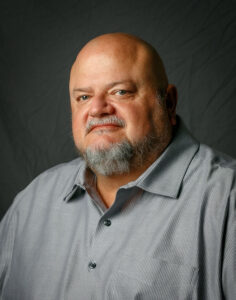
Business Manager Bob Dean
One hundred and thirty years ago, before our union was founded, it was common for outside linemen to work 12-hour days, in summer heat and winter storms, seven days a week. Employers insisted the work was low-skill and therefore low paid – linemen earned 15 to 20 cents an hour, while plumbers made nearly twice as much. Linemen received no training, and no apprenticeships were offered. There were no safety standards with which employers were required to comply.
At that time, the death rate for electrical workers was double the average for other industries nationally. In some parts of the country, half of all linemen who were hired could expect to die on the job. In fact, the founder of our union – Henry Miller himself – was killed while working on a line, just a few years after holding the first convention of the National Brotherhood of Electrical Workers in a small room above Stolley’s Dance Hall in a poor part of St. Louis.
Since then, we have made enormous progress. We have completely redefined the nature of the relationship between electrical employees and employers, established legally mandated training programs and equipment, pioneered apprenticeship programs that are now that industry norm, and pushed compensation and benefits way up (although many of us still do not earn what we deserve for the contributions we make).
But because of the nature of our work, we still score as one of the top ten most dangerous professions in America. Numbers from the Bureau of Labor Statistics show that electrical workers have a 19.2 fatality rate out of 100,000 workers. And that is no surprise: we work on dangerous commodities in unforgiving environments. That has always been and continues to be true.
But this year so far, we have experienced fatalities, near misses and accidents at a pace that is above our already-high rates. And as we face down fire season and the coming winter, it is time for all of us to re-focus on our own safety, as well as those who work for and with us.
Because the truth is that there is no cavalry coming, no company program that will save the day. There is only us having each other’s backs and doing what is right, day in and day out.
The good news is that there are resources to help us work safer. On the individual level, every member, Shop Steward, Organizing Steward, Business Representative and Business Manager should be a Steward of Safety. We hold ourselves to a higher standard and strive to exceed it.
As the son of a lineman and former systems operator, I know that there can sometimes be a block to doing every safety check, every time. It’s time to be aware of that tendency and rethink it – to have the hard conversation, or stop a job. To focus not just on getting it done, but getting it done right.
On the organizational level, 1245 is expanding our Hold the Pull, Control the Pressure and Keep the Clearance peer-to-peer safety programs, and I encourage you to volunteer. We are working towards starting a peer-to-peer program for our brothers in outside line and for other groups as well. Our brothers and sisters in grass roots are doing great work. But more needs to be done.
We need you. We need your voice and ideas on how we can keep improving the way we work. It should not cost you your life to work, you should not have to suffer a disabling injury to make a living. The terrible and long-lasting effects to the families of our fallen brothers cannot not be overstated. We owe it to each other to act.
For over one hundred years, IBEW members have prided themselves on being our brother and sister’s keeper. The heart of that is you, the 1245 member. We need each other more than ever. Let’s all enjoy the fruits of out labor and work to never have another brother fall.
–Bob Dean, IBEW 1245 Business Manager